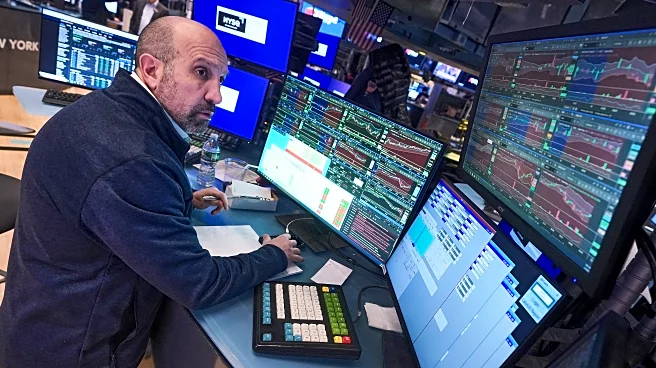Rapid Read • 8 min read
Recent analyses of the U.S. job market indicate that despite significant corporate investment and hype surrounding artificial intelligence (AI), there is little evidence to suggest that AI is currently causing widespread job losses. Employment surveys and company earnings reports reveal that while AI is frequently mentioned in corporate discussions, its actual impact on employment remains minimal. Analysts suggest that businesses may be incentivizing the narrative of AI as a disruptive force to justify cost-cutting measures. Notably, some tech companies, including Amazon and Microsoft, have indicated that AI could allow them to operate with fewer employees. However, the broader job market, particularly in white-collar sectors, remains stable, with some roles even recovering to pre-pandemic levels.
AD
The discourse around AI's potential to disrupt the job market is significant as it influences corporate strategies and public perception. While some companies cite AI as a reason for job cuts, the actual impact on employment is not yet substantial. This narrative could affect investment decisions and workforce planning across industries. The potential for AI to increase productivity while reducing hiring needs poses both opportunities and challenges for businesses and workers. If AI adoption accelerates, it could lead to significant shifts in job roles and economic structures, impacting sectors differently. Understanding AI's real versus perceived impact is crucial for policymakers and business leaders to navigate future economic landscapes.
As AI technology continues to evolve, its integration into business operations is expected to increase. Analysts predict that during future economic downturns, AI could play a more pronounced role in job displacement, particularly in white-collar professions. Companies may continue to explore AI's potential to enhance efficiency, potentially leading to new job creation in emerging sectors. Monitoring AI's impact on productivity and employment will be essential for adapting workforce strategies and ensuring economic resilience. Stakeholders, including government and industry leaders, may need to consider policies that support workforce transitions and address potential inequalities arising from AI-driven changes.
The ethical implications of AI in the workplace are an emerging concern. As AI tools become more integrated into business processes, issues such as data privacy, algorithmic bias, and the transparency of AI decision-making processes will require careful consideration. Additionally, the cultural shift towards AI-driven work environments may necessitate new skills and training programs to prepare the workforce for future demands. Long-term, the balance between technological advancement and human employment will be a critical area of focus for ensuring sustainable economic growth.
AD
More Stories You Might Enjoy











